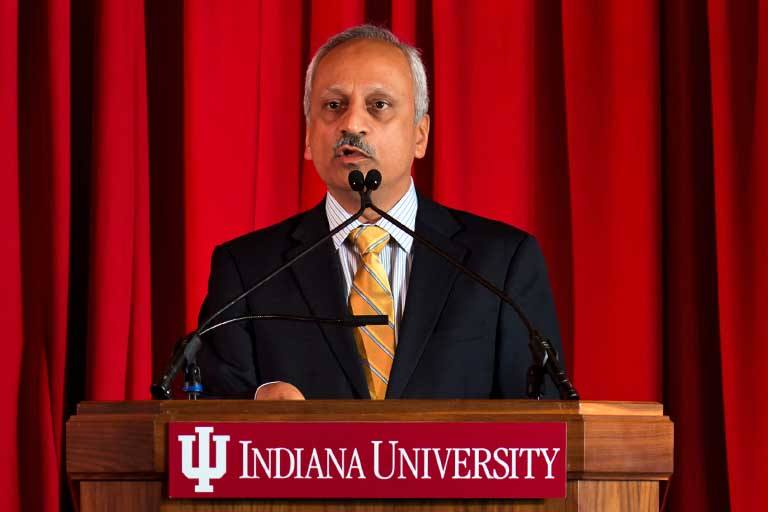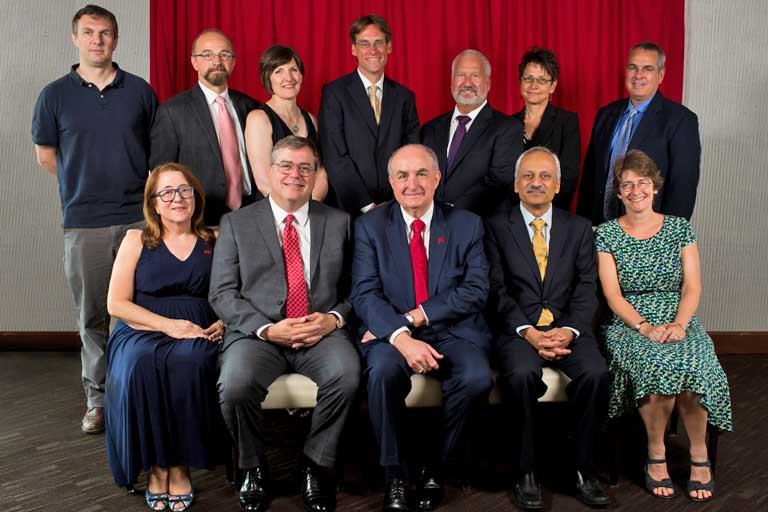Dear friend of Indiana University:
Nine months ago, Indiana University announced a bold plan to transform the way it conducts large-scale research for the betterment of Indiana and the world beyond our borders. Our five-year, $300 million Grand Challenges program is designed to bring together teams of our very best researchers—and to attract national research leaders to IU—for the purpose of tackling some of the most pressing issues facing our state, nation and world today.
By definition, a grand challenge—such as curing heretofore incurable diseases, addressing climate change and global water shortages or harnessing the power of, and protecting, big data—is one that is too large for any single individual or institution to solve on their own. What is required, however, is for research powerhouses like Indiana University to put a stake in the ground, through a commitment of financial and intellectual resources, to attract other like-minded institutions to come to the table to address such issues.
I am excited to report that the Grand Challenges program reached its first milestone last week with the announcement that the initial research grant has been awarded to a team led by Dr. Anantha Shekhar, IU’s associate vice president for clinical affairs and executive associate dean for research affairs at the IU School of Medicine, that will develop IU’s expertise in individualized precision medicine.



